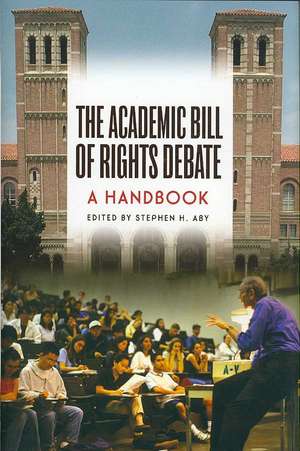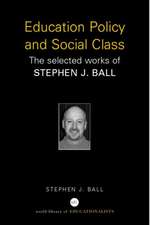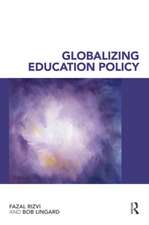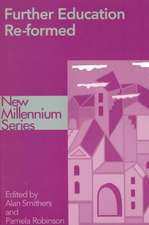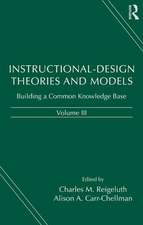The Academic Bill of Rights Debate: A Handbook
Editat de Stephen H. Abyen Limba Engleză Hardback – 29 aug 2007 – vârsta până la 17 ani
Preț: 288.05 lei
Preț vechi: 349.90 lei
-18% Nou
Puncte Express: 432
Preț estimativ în valută:
55.13€ • 57.34$ • 45.51£
55.13€ • 57.34$ • 45.51£
Carte tipărită la comandă
Livrare economică 14-28 aprilie
Preluare comenzi: 021 569.72.76
Specificații
ISBN-13: 9780275992446
ISBN-10: 0275992446
Pagini: 248
Dimensiuni: 156 x 235 x 24 mm
Greutate: 0.52 kg
Editura: Bloomsbury Publishing
Colecția Praeger
Locul publicării:New York, United States
ISBN-10: 0275992446
Pagini: 248
Dimensiuni: 156 x 235 x 24 mm
Greutate: 0.52 kg
Editura: Bloomsbury Publishing
Colecția Praeger
Locul publicării:New York, United States
Notă biografică
Stephen H. Aby is Professor of and Education Bibliographer at the University of Akron. He has a PhD in Social Foundations of Education from the State University of New York, Buffalo, an MA in Sociology from the University of Houston, and an MLS from Kent State University. His previous books include Sociology: A Guide to Reference and Information Sources with James Nalen and Lori Fielding (Libraries Unlimited, 2005) and Academic Freedom: A Guide to the Literature with James C. Kuhn (Greenwood Press, 2000). University of Akron.
Recenzii
In 2003, right wing activist David Horowitz introduced his Academic Bill of Rights (ABOR), a treatise on higher education that seeks to correct what Horowitz perceives as a Leftist domination of and favoritism within academy. Aby (education, U. of Akron, Ohio) compiles 17 critiques of the doctrine, at their center seven installments of the debate between Horowitz and outspoken opponent Graham Larkin of Stanford U. Other essays describe the background to the conservative fight against higher education practices, argue that the ABOR's realization would threaten academic principles such as reasoned inquiry, and takes issue with the notion that party affiliation is either a determining factor in faculty hiring or that it influences great distinctions in curriculum.
[T]hese essays tell both sides of the story . . . As conservatives attempt to curb liberal radicals in academia, the ABOR is an ongoing debate seemingly between the right and left. However, this collection manages to remain reasonably neutral and is able to point out the similar stances between those for and against ABOR.
[T]hese essays tell both sides of the story . . . As conservatives attempt to curb liberal radicals in academia, the ABOR is an ongoing debate seemingly between the right and left. However, this collection manages to remain reasonably neutral and is able to point out the similar stances between those for and against ABOR.
